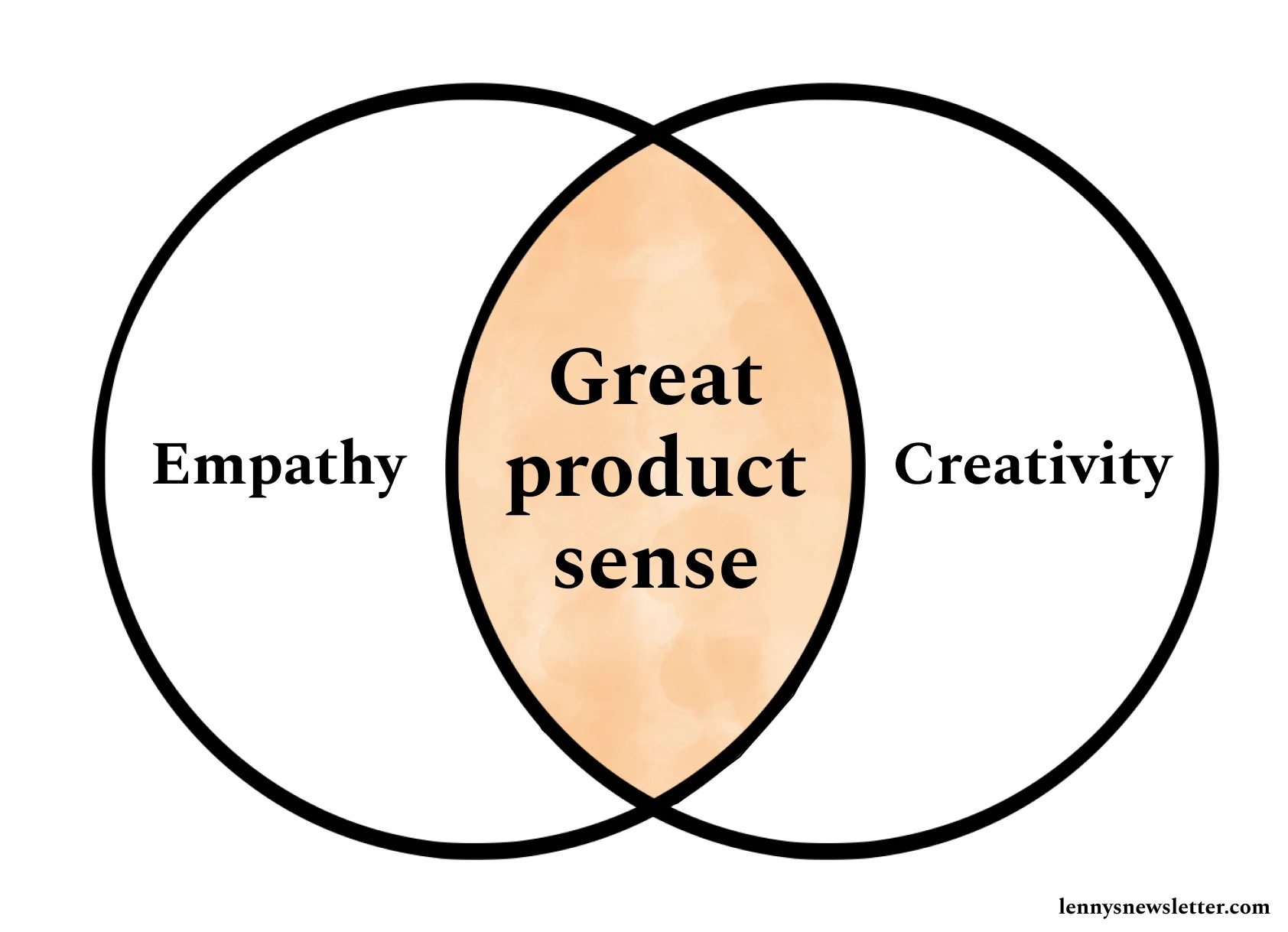Product managers are a link between user needs, the product, and business goals. Your main goal is to create products that meet customer needs and succeed in the market. But what skills do you need to do well in this role?
This article will show you the essential hard and soft skills you need. These skills help you balance user needs, business goals, and your product’s capabilities. Let’s look at how you can build a solid base for a great career in product management.
Understanding the product manager role
Product management is about more than just overseeing product development. It’s about vision and strategy.
Product managers handle many tasks. They define what to build, and why. They also guide how to build it. Their responsibilities include:
- Identifying user needs through research and feedback
- Setting product goals that align with business objectives
- Working with engineers and designers to create effective products
- Launching products and tracking their success in the market
Successful product managers ensure that products meet user expectations. They also need to contribute to the company’s success. To achieve this, they need a strong knowledge of the market, the users, and the available technology.
Let’s explore the skills that can help achieve all that.
Hard skills
Certain technical skills are indispensable to excel in product management. These skills help you:
- Make informed decisions
- Understand product design
- Manage the development process effectively
Let’s discuss those skills.
Technical fluency
Product managers don’t need to be expert coders. Still, technical fluency helps you communicate effectively with the engineering team. You will also understand the possibilities and limitations of technology. And you can assess what engineers can build within given timelines and budgets.
Project management falls under this category, too. Some companies have dedicated project managers. In other places, a product manager assumes this role. Make sure you know how these two roles interact in your team. Then, learn what a good project manager does and do your best to become one, too. Every technical skill will help you stand out.
Analytical skills
Analytical skills are vital for making data-driven decisions. Product managers use data analysis to:
- Measure product performance
- Interpret user behavior
- Make adjustments to product strategies
You need to back your decisions with solid evidence. Analytical skills can really come in handy with this.
Research and market analysis
Understanding the market is key to building a product that stands out. This involves competitive analysis, trend identification, and user research. Analyze the market and identify user needs first. Then, it’ll become easier to pinpoint opportunities for innovation and improvement.
Roadmapping
Roadmapping involves planning a product’s future development. You need to set goals and milestones that align with the business’s objectives and user needs. You also need to figure out which features to prioritize and how to pick the most impactful ones.
Effective roadmaps help here. They provide a clear path for development teams and help manage stakeholder expectations. Once you have a set plan, you can determine the order in which you’ll build features.
Not sure where to start with a product roadmap? Check out our free templates here.
AI tools
Familiarity with AI tools is becoming increasingly important in product management. These tools can:
- Detect trends in customer feedback
- Analyze user feedback
- Brainstorm and prioritizing ideas
- Write support documentation
- Create project plans
- Tailor user experience
- Automate reporting
- Analyze competitors
- Detect bias
Check out Canny’s Autopilot – a brand new suite of AI tools that save you time.
Product marketing
Similar to project management, sometimes companies have a dedicated person to handle product marketing. Other times, it’s on you. If you assume the role of a product marketing manager, learn about the basics:
- How do you promote your updates?
- What is your target market?
- How can market research help you here?
Remember: great product managers can do many things well. Understanding product marketing will only help you on your career path.
Soft skills
Let’s talk about the soft skills that every product manager needs to succeed. These are just as important as hard skills, if not more, because they help you navigate the human aspects of the job.
Product sense
Product sense is an intuitive understanding of what makes a product great. It involves knowing what users value and how to enhance their experience.
How can you develop it? It goes hand in hand with one of the core hard skills – user experience. Master user experience (UX) principles, and you can design functional and fun-to-use products. This includes understanding user flows, interface design, and usability testing.
“Product sense is not something you need to be born with. It’s a learned skill, just like any other PM skill.”
Jules Walter, product lead at Google Gemini

A few activities can help develop your product sense:
- Observing people interacting with products
- Deconstructing everyday products
- Learning from great product thinkers
- Being curious about changes in technology and your domain
Strategic vision
Having a strategic vision means seeing the bigger picture. It’s about knowing where you want your product to go and planning the steps to get there. A good product manager:
- Thinks ahead
- Anticipates trends
- Aligns product goals with the company’s long-term objectives
You need to think through your product strategy before you start anything else. That’s called strategic thinking.
Leadership and team management
Product managers are the champions of products and the lead motivators. They need to inspire and keep everyone moving in the right direction. Effective leadership involves:
- Motivating the team
- Managing diverse personalities
- Making sure everyone feels valued and understood
Product managers need to work with and bring together members from different functions. You are the glue between engineering, sales, design, customer success and support, marketing, and more.
Critical thinking and problem-solving
Problems are just puzzles to solve. Product managers use critical thinking to find the root causes of issues. Then, they devise smart solutions based on that. This skill is crucial for quick and efficient decisions.
Communication skills
Clear communication is essential. It helps when speaking to your team, presenting to stakeholders, or writing an email. Remember – it’s not just about talking; it’s about listening too.
User empathy and customer research
Put yourself in your users’ shoes. User empathy allows you to understand their experiences and needs deeply. Combine it with solid customer research, and you can create a product that resonates with its audience.
Adaptability and resilience
Things change fast in product management. Being adaptable and resilient helps you manage the ups and downs. It’s about bouncing back from setbacks and being flexible enough to shift gears when needed. Use any change as an opportunity to improve.
Example: Netflix’s shift to streaming
Netflix originally started as a DVD rental service by mail. As digital media grew, they had to adapt. They anticipated the shift towards on-demand content and transitioned from DVDs to streaming. This pivot required significant investment in technology and new content licensing deals. They also had to educate their customers about the new service.
Despite these challenges, Netflix’s adaptability paid off. They maintained their relevance and became a leader in the entertainment industry. This bold move transformed Netflix into a global streaming giant.
Diplomacy and emotional intelligence
Sometimes, you have to be a diplomat. Emotional intelligence (EI) helps you handle conflicts, manage sensitive situations, and negotiate effectively. It’s about understanding emotions and using that insight to guide your actions.
You need to work with many people to build great products. You can’t do it all alone. Having a strong EI can help you collaborate effectively.
Prioritization
We mentioned prioritization in the roadmapping section. There’s also personal prioritization – how do you decide what to work on first? You have the most crucial task, but how do you break it down and get started?
There’s always a lot to do, but not everything can be a top priority. That’s a prioritization skill. Try the following:
- Check how you or your team completed similar tasks in the past
- Assess what worked and what didn’t
- Research how others do it
- Write it out, especially when you have big tasks
- Delegate – don’t try to do it all yourself
- Set deadlines to stay accountable
Managing your time well helps you meet deadlines without burning out.
Delegation
You can’t do everything yourself. Delegation involves trusting your team with tasks. You need to give them the chance to grow while you focus on other areas. It’s about knowing what to delegate, to whom, and ensuring they have the resources to succeed.
Our co-founder Sarah talks about team management and delegation in her latest blog post – check it out here.
Persuasion
Got a great idea? You’ll need to persuade others that it’s worth pursuing. Persuasion is all about:
- Getting buy-in from stakeholders and your team
- Using logic, charisma, and enthusiasm to sway them to your side
These soft skills blend together to create a well-rounded product manager.

How to acquire and build these product management skills
We’ve covered many essential skills for product managers. Now, let’s dive into how you can acquire and build these skills effectively.
Courses
There are tons of courses out there tailored to budding product managers. Look for courses that cover both the fundamentals and advanced aspects of product management. Platforms like Coursera, Udemy, and LinkedIn Learning offer comprehensive programs from industry experts. There are also specialized product management training programs and bootcamps. They can provide intensive learning experiences.
We’ve put together a list of the best product management certifications here. This list features preparation courses you can take, so check it out!
Books
Books are your best friends when it comes to deep dives into specific topics. Here are a few must-reads:
- “Inspired” by Marty Cagan offers insights into how to create products customers love
- “Lean Product and Lean Analytics” by Ben Yoskovitz and Alistair Croll dives into using data to perfect your product
- “The Lean Startup” by Eric Ries teaches you how to innovate more effectively

Communities
Joining product management communities can significantly accelerate your learning. Platforms like ProductHunt, ProductSchool, and industry-specific groups on LinkedIn and Slack are great. They provide a space to:
- Exchange ideas
- Ask questions
- Get feedback from peers and seasoned pros
Resources
There are endless online resources to tap into. Websites like ProductCoalition and Pragmatic Institute offer articles, whitepapers, and case studies. Also, use templates and tools these sites provide to practice what you learn.
We publish educational materials on our blog weekly. Subscribe here so you don’t miss our new content!
Podcasts
Podcasts are a great way to absorb information on the go. Check out podcasts like “Product Love” and “Masters of Scale.” You can hear stories and advice from top product leaders and entrepreneurs. They often talk about common product management problems you might relate to. Knowing that someone else went through the exact same thing is comforting.
We’ve checked out a bunch of podcasts and created this list of the best ones. Enjoy!
Blogs
Blogs are an excellent source of cutting-edge insights and tips. Regularly reading blogs like Silicon Valley Product Group can keep you updated on industry trends and best practices.
We have a list of the best product management blogs right here. Check it out.
Events
Lastly, attend product management events and workshops. These not only provide learning opportunities but are also great for networking. Conferences like ProductCon offer workshops, talks, and panels with industry leaders.
Start exploring and keep learning. The more you know, the better you’ll be at your job.
Where to focus on first
We’ve just thrown a lot of information and resources at you. It can all get overwhelming quickly. So, where do you even start?
Start with your interests and weaknesses
Identify which aspects of product management:
- Excite you the most
- Challenge you the most
- Starting with these areas will keep you motivated.
Master the fundamentals of product management
Before diving into more specialized skills, make sure you have a solid understanding of the basics. This includes understanding:
- Product life cycles
- User needs
- How to align your work with business objectives
Do you feel like you know all this by heart? Great, you can move on.
Need a quick refresher? Pause here. Scroll up and check out some fundamental courses and books we mentioned.
Develop strong communication and leadership skills
Product managers constantly interact with different teams and stakeholders. That’s why effective communication and leadership skills are crucial. Work on these early in your career to establish strong relationships.
Engage with a community
Join a product management community as soon as you can. The insights, advice, and support from peers and mentors can accelerate your learning. You can also get practical, real-world perspectives.
Learn by doing
Whenever possible, apply what you’re learning in real-world scenarios. Try simulations in courses, side projects, or at your job. Practical application is one of the best ways to deepen your understanding and improve your skills.
Keep iterating on your skills
Like the products you’ll manage, your skill set should evolve continually. Regularly assess your skills, gather feedback, and adjust your learning plan. This iterative process will help you stay relevant and effective in your role.
Essential product manager skills and where to get them
To become a good product manager, you need to master many things. Essential hard skills include analytics, research, and roadmapping. When it comes to soft skills, focus on leadership, delegation, and communication. But don’t worry — there are plenty of resources to help you.
You can take a course, read a book, or listen to a podcast. There are many ways to learn, so pick what works best for you. Focus on your weak areas first.
We hope this guide has been helpful. Save it for later, and you’ll never feel stuck in your product management career!








